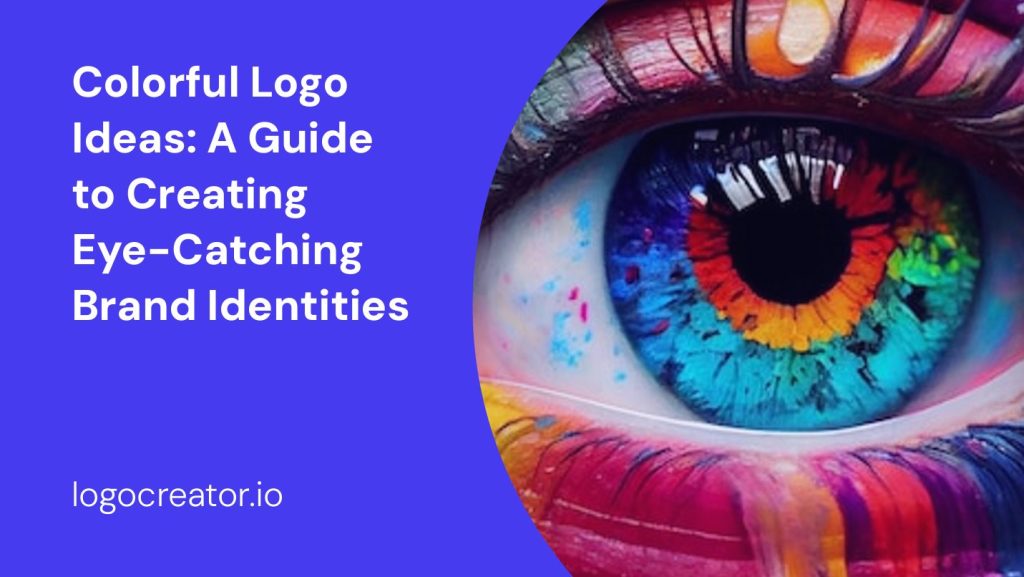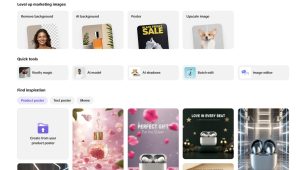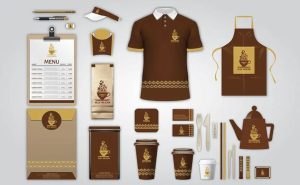Are you looking to design a logo that stands out from the crowd? One of the most effective ways to make a lasting impression is through the use of vibrant and colorful designs. A colorful logo can convey a sense of energy, creativity, and playfulness, instantly capturing the attention of your target audience. In this article, we will explore various ideas and strategies for creating eye-catching and memorable colorful logos. Whether you’re a small business owner, a freelancer, or a design enthusiast, this guide will help you unleash your creativity and elevate your brand identity.
The Power of Colors in Logo Design
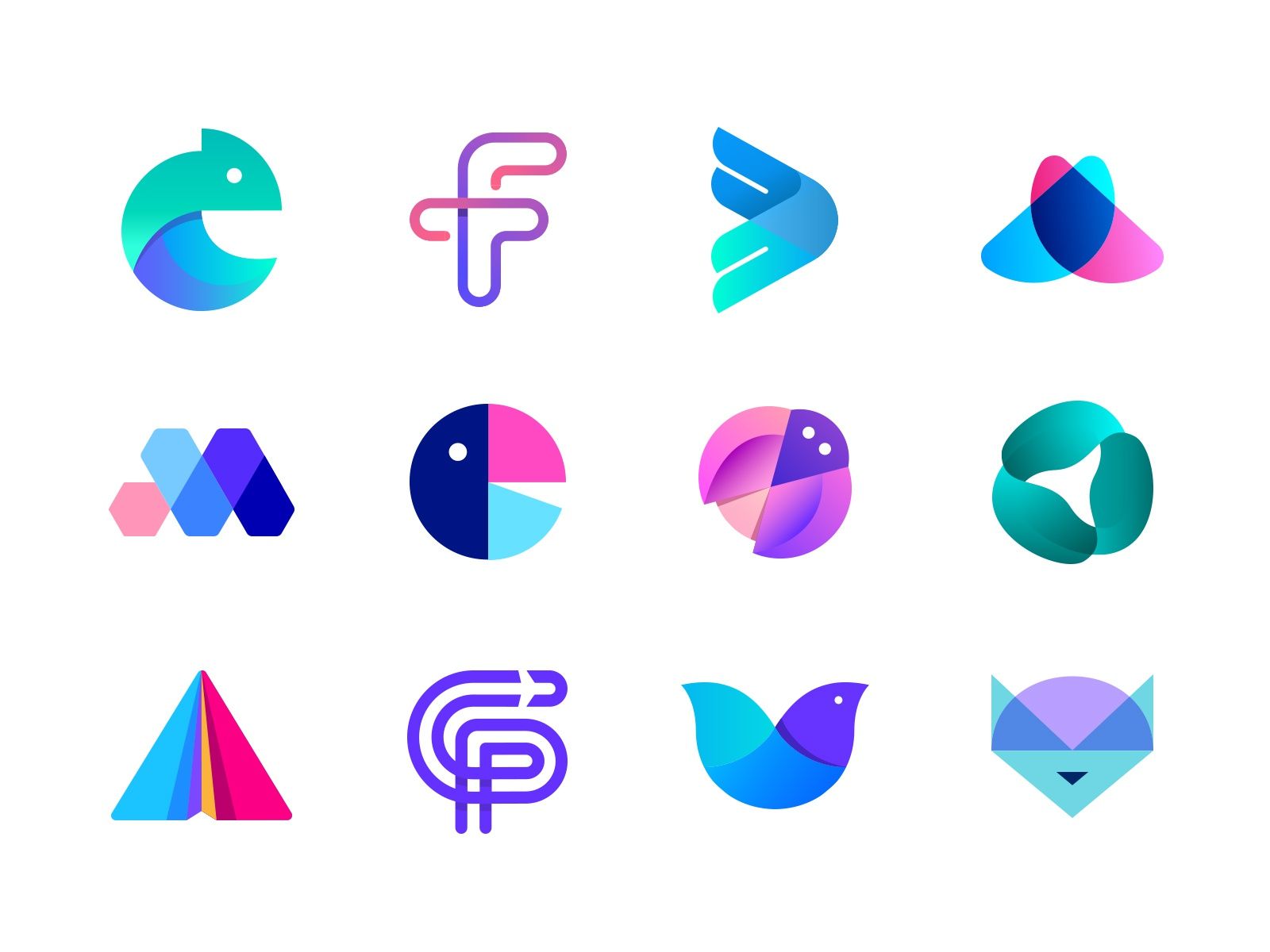
Colors play a significant role in logo design as they evoke emotions, establish brand identity, and communicate messages. Before diving into specific ideas, it’s crucial to understand the psychology of colors and their impact on human perception. Here are some common colors and the emotions they typically evoke:
1. Red: Passion, Energy, and Excitement
Red is a powerful color that grabs attention and creates a sense of urgency. It is often associated with passion, energy, and excitement. Brands like Coca-Cola and Netflix incorporate red into their logos to evoke a strong emotional response.
2. Blue: Trust, Stability, and Professionalism
Blue is a calming color that conveys trust, stability, and professionalism. Many financial institutions and tech companies use blue in their logos, such as IBM and Facebook, to establish credibility and reliability.
3. Yellow: Optimism, Happiness, and Warmth
Yellow is a color that radiates positivity, optimism, and happiness. Brands like McDonald’s and Snapchat utilize yellow in their logos to create a cheerful and friendly image.
4. Green: Growth, Health, and Nature
Green symbolizes growth, health, and nature. It is often associated with eco-friendly brands, such as Starbucks and Whole Foods, to communicate their commitment to sustainability and well-being.
5. Orange: Creativity, Fun, and Enthusiasm
Orange is a vibrant and energetic color that exudes creativity, fun, and enthusiasm. Brands like Fanta and Nickelodeon incorporate orange in their logos to evoke a sense of playfulness and excitement.
6. Purple: Luxury, Royalty, and Imagination
Purple is often associated with luxury, royalty, and imagination. Brands like Cadbury and Hallmark use purple in their logos to convey a sense of elegance and creativity.
7. Pink: Femininity, Romance, and Playfulness
Pink is a color that represents femininity, romance, and playfulness. Brands like Barbie and Victoria’s Secret incorporate pink in their logos to appeal to a predominantly female audience.
Understanding the emotions and associations linked to different colors can guide you in selecting the right hues for your logo design. However, don’t limit yourself to these predefined notions. Feel free to experiment and combine colors to create a unique visual identity that aligns with your brand’s personality.
Creative Colorful Logo Ideas
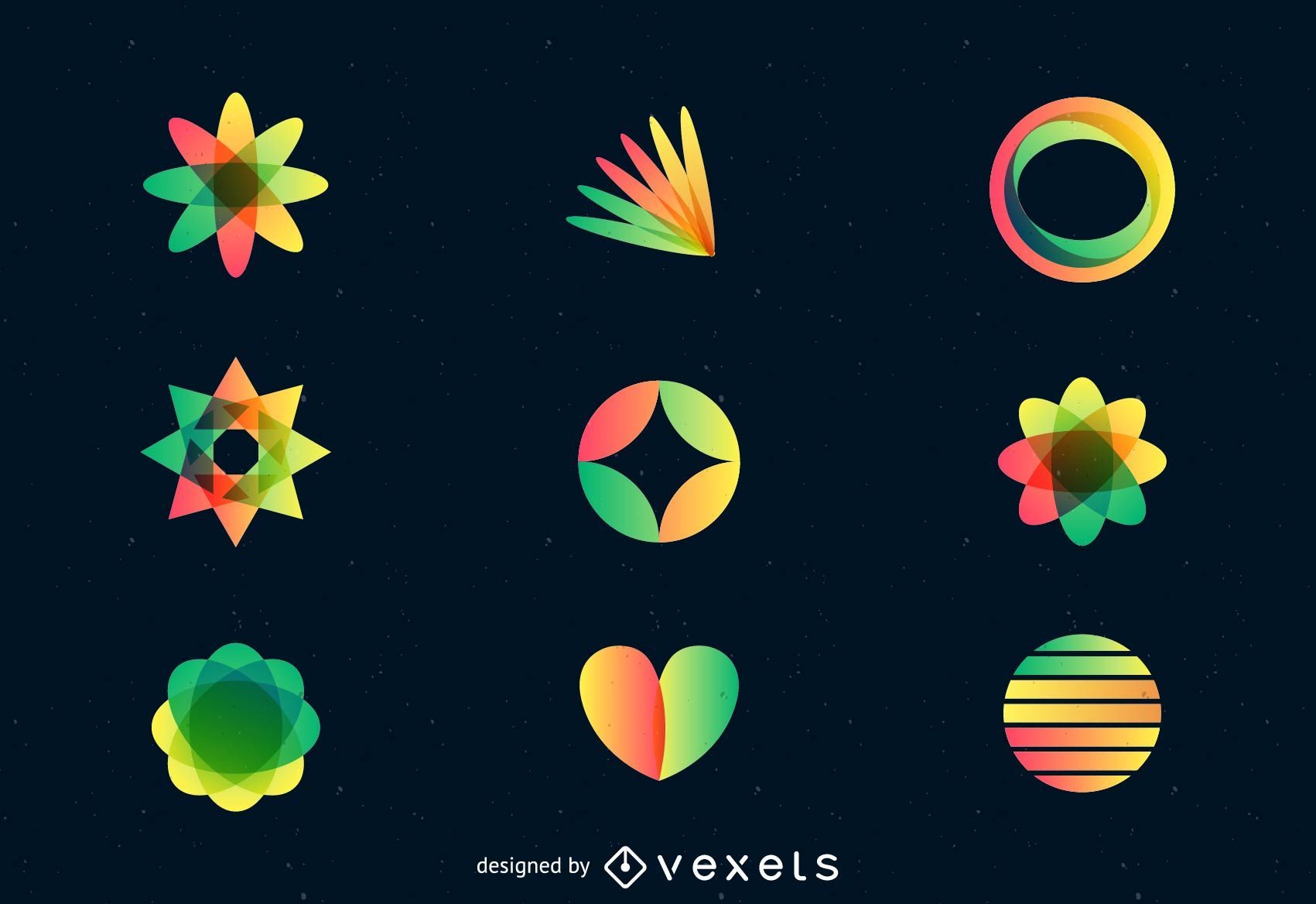
Now that we’ve explored the psychology behind colors, let’s delve into some creative ideas to inspire your colorful logo design process.
1. Gradient Magic
Gradients are a popular design trend that adds depth and dimension to your logo. By blending two or more colors seamlessly, you can create a visually appealing logo that captures attention. Consider using bright and contrasting colors for maximum impact. Gradient logos work well for technology, entertainment, and creative industries.
2. Playful Typography
Integrating vibrant colors into your typography can make your logo more playful and eye-catching. Experiment with bold and unconventional typefaces, and infuse them with lively colors that reflect your brand’s personality. This approach is particularly effective for companies targeting a youthful and energetic audience.
3. Abstract Shapes and Patterns
Using abstract shapes and patterns can add an element of intrigue and uniqueness to your logo. Combine different colors to create visually stunning designs that leave a lasting impression. Abstract logos are versatile and can work well for a wide range of industries, from fashion to technology.
4. Color Blocking
Color blocking involves using solid, contrasting colors to create distinct sections within your logo. This technique can result in a bold and visually striking design. It is particularly effective for logos that need to be easily recognizable and memorable, such as app icons or social media avatars.
5. Nature-inspired Palettes
Drawing inspiration from nature can lead to visually captivating logo designs. Consider using vibrant colors found in flowers, landscapes, or animals to create a sense of freshness and vitality. This approach is ideal for eco-friendly brands, health and wellness businesses, or any organization with a strong connection to the natural world.
6. Retro Vibes
Embracing retro aesthetics can give your logo a nostalgic and timeless appeal. Experiment with bold and vibrant colors commonly associated with vintage design eras, such as the 80s or 90s. This approach can be particularly effective for fashion, music, or entertainment brands targeting a nostalgic audience.
7. Minimalistic Pop
Contrary to popular belief, minimalistic logos can also be colorful and impactful. By combining clean and simple shapes with vibrant colors, you can create a modern and visually pleasing logo. This approach works well for brands that want to convey simplicity, elegance, and a touch of playfulness.
Tips for Creating Effective Colorful Logos
While incorporating colors into your logo design is an exciting process, it’s important to keep a few key principles in mind to ensure your logo is effective and memorable.
1. Consider Your Target Audience
Understanding your target audience’s preferences and demographics is crucial when choosing colors for your logo. Different colors resonate differently with various age groups, genders, and cultures. Conduct thorough research to ensure your logo appeals to your desired audience.
2. Maintain Balance
While using vibrant colors can be enticing, it’s important to maintain a sense of balance in your logo design. Avoid overwhelming your audience by using too many colors or clashing color combinations. Strive for harmony and coherence in your overall design.
3. Test in Different Contexts
Before finalizing your colorful logo, test it in various contexts to ensure it remains legible and visually appealing. Consider how it would look on different backgrounds, in different sizes, and across various marketing materials. This will help you determine if any adjustments are needed.
4. Keep it Timeless
While it’s important to stay current and follow design trends, it’s equally important to create a logo that stands the test of time. Consider the longevity of your colorful logo and aim for a design that will remain relevant and effective for years to come.
5. Seek Professional Help
If you’re not confident in your design skills or need expert guidance, don’t hesitate to seek professional help. Hiring a graphic designer or a branding agency can ensure your colorful logo effectively represents your brand and resonates with your target audience.
Conclusion
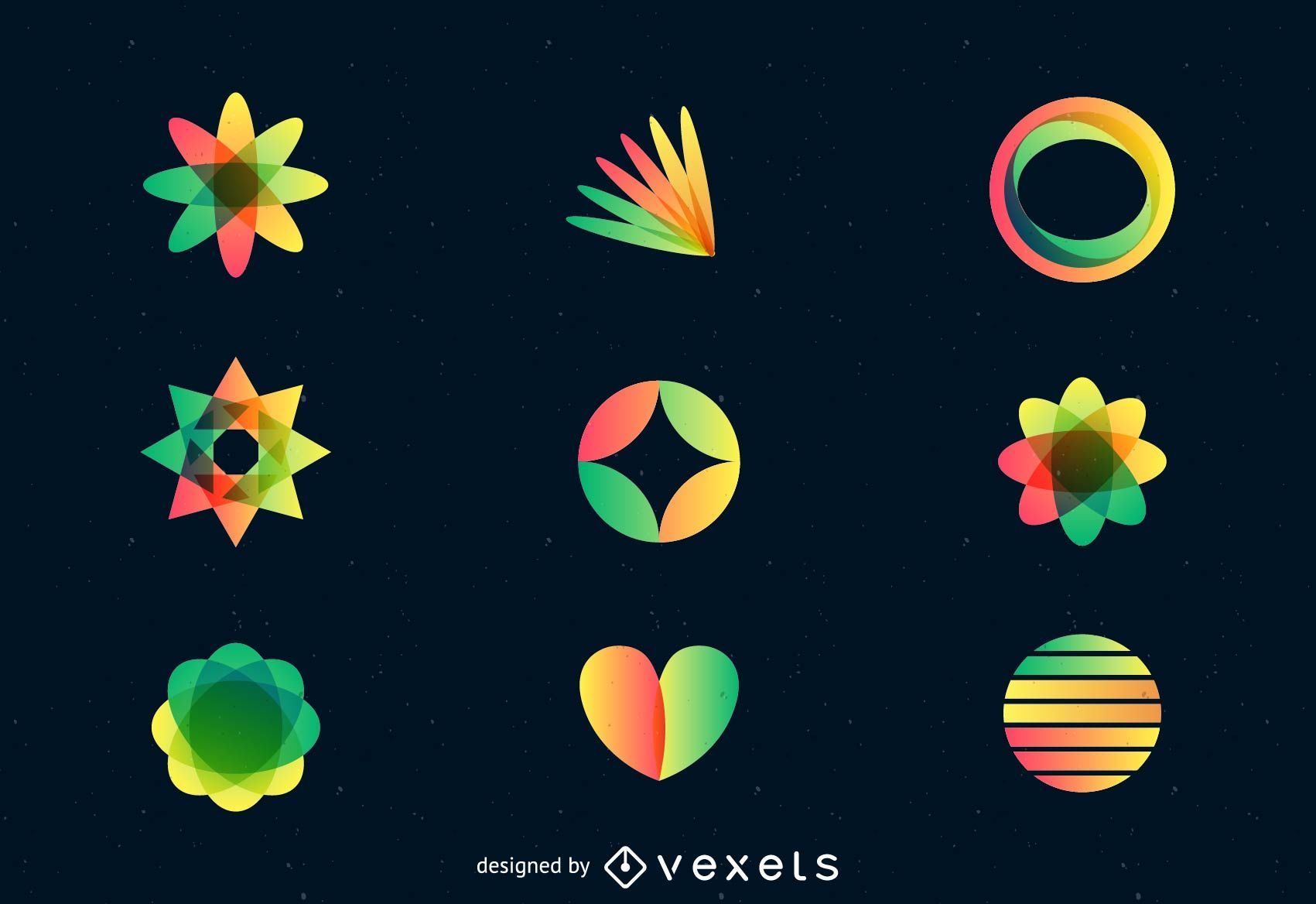
Creating a colorful logo that captivates your audience requires careful thought, creativity, and an understanding of color psychology. By harnessing the power of colors and experimenting with different design techniques, you can create a logo that not only catches the eye but also communicates your brand’s values and personality effectively. Remember to keep your target audience in mind, maintain balance, and test your logo in various contexts to ensure its effectiveness. With these tips and ideas, you’re now ready to embark on your journey of designing an eye-catching and memorable colorful logo.
Angela Irwin is a branding and design enthusiast with a Bachelor of Fine Arts in Graphic Design from Meadowbrook College. As a writer at Logocreator.io, she shares her expertise on logo design, graphic trends, and effective branding strategies, helping businesses create impactful visual identities.
